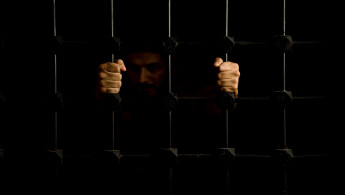Egyptian women group face terrorism-related charges over 'cooking for political prisoners'
An Egyptian state security prosecutor renewed on Sunday, 10 September, the dentation of several women for 15 days, pending further investigations into the charges of allegedly supporting and fundraising for a terrorist group.
The female detainees, most of their identities have not yet been disclosed, had in recent months formed a group named "Our Group Kitchen," which volunteered to cook decent meals for political prisoners and promoted the initiative on social media, according to a report released by Al-Araby Al-Jadeed, the Arabic language sister company of The New Arab.
The report added that women took turns delivering the meals; each one would distribute the food among inmates on the day of her scheduled visit.
The women, identified as wives or relatives of the detainees and inanimate and led by Asmaa El-Rouby, had reportedly been subjected to enforced disappearance earlier last month before they appeared at the state security prosecution's office weeks later. Some claimed they were beaten up and abused during arrest or in custody.
A defence team member told A-Araby Al-Jadeed that "many other detainees were absent during the Sunday interrogation for unknown reasons."
"The actual number of women charged in the case remains unclear as lawyers have not allowed yet by the prosecution to examine the case file, but only informed of the charges with no elaboration," a defence team member told Al-Araby Al-Jadeed.
Egypt's human rights record has been frequently slammed by local and international rights groups, estimating about 60,000 political prisoners in the North African country; many of them reportedly face abuse, torture and medical neglect.





 Follow the Middle East's top stories in English at The New Arab on Google News
Follow the Middle East's top stories in English at The New Arab on Google News


